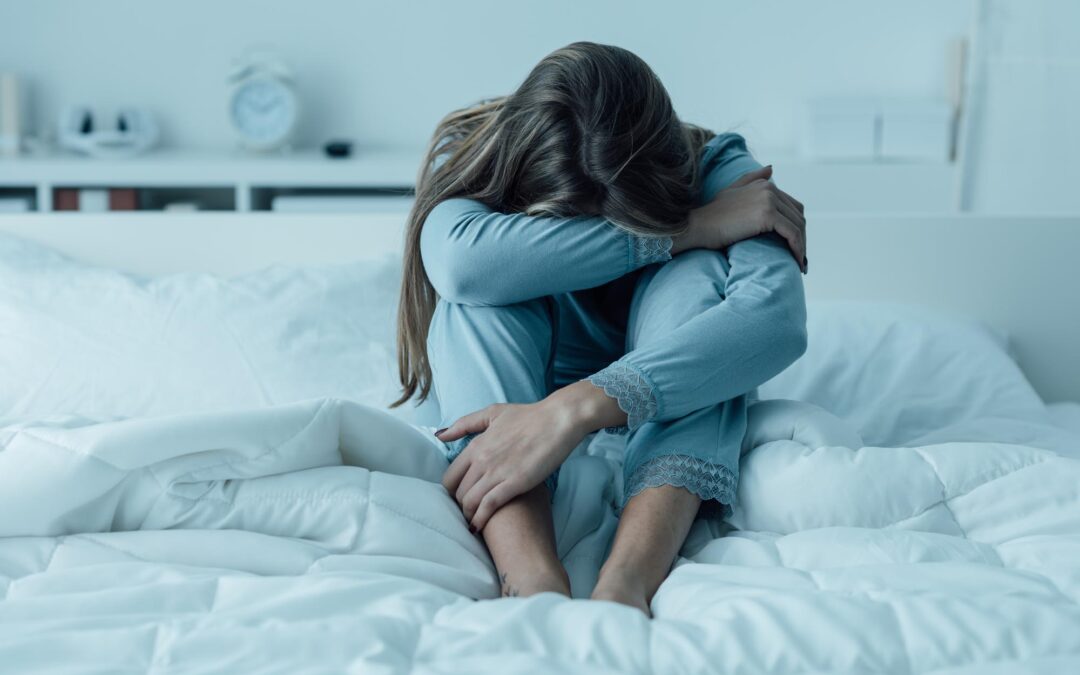The holidays can be stressful for many, with the hustle and bustle that comes with wrapping up the year or preparing to welcome in the new one. If you’re feeling overwhelmed, it’s important to take care of your mental health during this festive season.
We want to help you enjoy this time of year without letting stress get in the way. If you or a loved one is interested in our women’s mental health treatment programs, contact our facility in Woburn, MA.
How Are Holidays and Mental Health Connected?
Holidays and mental health are closely linked. Holidays are often associated with an increase in stress and feelings of loneliness, which can take a toll on our mental health. The demands of holiday activities, such as shopping, cooking, entertaining, and family gatherings can cause fatigue, anxiety, and depression.
These feelings can contribute to the development or worsening of mental health issues if left unchecked. Holidays can also bring up difficult memories or emotions related to past experiences, which can be difficult to handle. Treatment for women’s mental health may be necessary if symptoms worsen.
On the other hand, holidays can also provide an opportunity for individuals to practice self-care and relaxation techniques that can help reduce stress levels and maintain positive mental health. Spending time with family and friends in a supportive environment can help boost morale and create more positive memories.
Additionally, engaging in activities such as exercising or getting out in nature can have a calming effect on the mind while helping to reduce stress hormones like cortisol. Taking some time for yourself to do something enjoyable or meaningful can help improve your mood while boosting confidence and overall well-being.
Why Are the Holidays Hard on Mental Health?
Holidays can be difficult for people with mental health issues because of the heightened expectations and social pressures associated with them. People may feel pressure to act a certain way, or like they are not living up to society’s standards.
The extra stress of spending money on gifts or traveling can also contribute to anxiety and depression. The holidays often bring reminders of what someone has lost, such as family members who have passed away or relationships that have ended, which can be very difficult for people dealing with mental health issues.
Furthermore, changes in routine caused by holidays can disrupt both sleep patterns and healthy eating habits, both of which are important for good mental health.
Why is Anxiety Worse During the Holidays?
Anxiety is often worse during the holidays due to a combination of factors. For many, there is an increased level of stress associated with the holiday season. Shopping for gifts, preparing meals, and attending social gatherings can be overwhelming.
Additionally, there may be feelings of loneliness or sadness associated with the absence of family and friends who have passed away or moved away. There is also a sense that expectations are higher during the holidays and so much emphasis is placed on having a happy and joyous time that it can create an added layer of pressure.
The overwhelming combination of holidays and mental health issues can cause symptoms of anxiety to worsen. Seek anxiety treatment if you or a loved one struggles to control these symptoms.
What is Seasonal Depression?
 Seasonal depression, also known as Seasonal Affective Disorder (SAD), is a type of depression that occurs at the same time every year. It typically begins in the late fall or early winter and goes away during the spring and summer months.
Seasonal depression, also known as Seasonal Affective Disorder (SAD), is a type of depression that occurs at the same time every year. It typically begins in the late fall or early winter and goes away during the spring and summer months.
Symptoms of seasonal depression can include
- Feelings of sadness
- Fatigue
- Low energy levels
- Difficulty concentrating
- Changes in appetite and sleeping patterns
- Withdrawal from social activities
- Loss of interest in hobbies and activities
- Irritability
- Anxiety
- Feeling overwhelmed
Seasonal depression treatment may include counseling, antidepressant medication, and/or psychotherapy.
Why Holidays Are Hard for People with Trauma?
Trying to balance the holidays and mental health can be difficult for people with trauma for a variety of reasons. For one, holidays often involve large gatherings of people and may include family members or other individuals who might have been involved in the traumatic event. This can potentially lead to a high-stress situation that can trigger flashbacks and anxiety.
Holidays often come with expectations of happiness and fun, which can be hard to access when someone is dealing with the aftermath of trauma. People with trauma may also find it difficult to connect with the joy and celebration associated with the holiday due to complicated emotions such as guilt, shame, sadness, etc. These emotions are common among survivors of trauma and can make it more challenging to fully engage in holiday activities.
Finally, many holidays involve traditions that might bring back painful memories or remind an individual of their traumatic experience. This could lead to feelings of distress or overwhelm that may interfere with any enjoyment they could potentially have during a holiday season.
How is Women’s Mental Health Affected By the Holidays?
The holidays can be a stressful time for many people, especially women. The added pressure of shopping, entertaining, cooking, and cleaning can lead to an increase in feelings of anxiety and depression.
Women often have to take on the most responsibility during the holidays and are more likely than men to experience burnout due to holiday-related stress. Additionally, there may be unresolved family issues or pressures from cultural expectations that can add to feelings of distress.
For example, if a woman is not married or does not have children by a certain age she may feel ashamed or guilty. Further, women may be expected to put their own needs aside to prioritize those of their families which could result in intense feelings of resentment or regret.
The holidays and mental health issues may cause symptoms of anxiety and depression to worsen. Women must prioritize their mental health during this time. If symptoms continue to get worse, it may be beneficial to participate in mental health therapy.
How To Stay Healthy During Holidays
 The holidays and mental health regulation can be challenging, especially with additional stressors like increased responsibilities and financial pressures. Here are some tips to help you stay mentally healthy during the holiday season:
The holidays and mental health regulation can be challenging, especially with additional stressors like increased responsibilities and financial pressures. Here are some tips to help you stay mentally healthy during the holiday season:
Take care of yourself mentally and physically
Get plenty of sleep and exercise regularly. Eating balanced meals, drinking enough water, and getting fresh air will also help keep your body healthy, which in turn helps maintain a healthy mind. Individual therapy can also help you practice healthy coping techniques to improve your mental health
Manage your expectations.
Don’t put too much pressure on yourself or your family to make everything perfect. Set realistic goals for what you want to accomplish during the holidays and don’t be afraid to say no if you can’t do it all.
Stay connected
Reach out to friends and family members who may be feeling lonely or isolated during the holidays. Even a simple phone call or text can make a big difference in someone’s day. For those who are unable to spend time with their families due to travel restrictions or social distancing requirements, look for virtual ways to celebrate together such as video calls or shared online activities.
Practice self-care
Make sure that you take some time each day for yourself. Do things that relieve stress and improve your mental health such as exercising, reading a book, taking a walk outside, journaling, or meditating. Whatever allows you to relax and recharge is important!
Seek professional help if needed
If the stress of the holidays and mental health issues becomes overwhelming and starts affecting your daily life and relationships then it may be helpful to seek out professional help. Programs such as mindfulness-based therapy can help you manage difficult emotions during this time.
Seek Women’s Mental Health Treatment at Lightwork T&R
Lightwork Therapy and Recovery specializes in women’s mental health treatment. Our experienced staff provides comprehensive care designed to identify and address the unique challenges faced by women.
We offer treatment for anxiety, depression, and post-traumatic stress disorder (PTSD) through our outpatient and Mental Health Day Treatment programs. Our goal is to empower our clients with the skills they need to lead healthier and more fulfilling lives.
If you or someone you know is seeking help for their mental health needs, please contact us today to learn more about our services.





